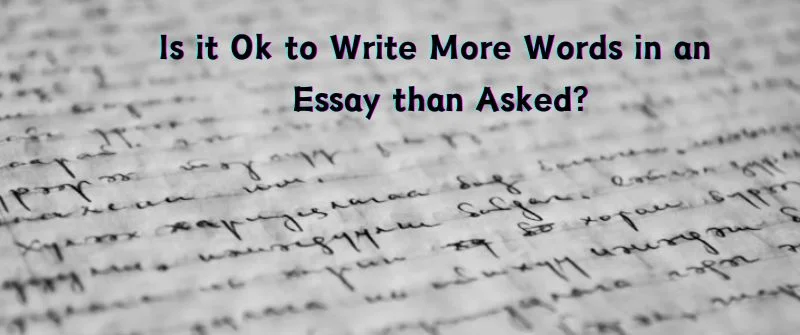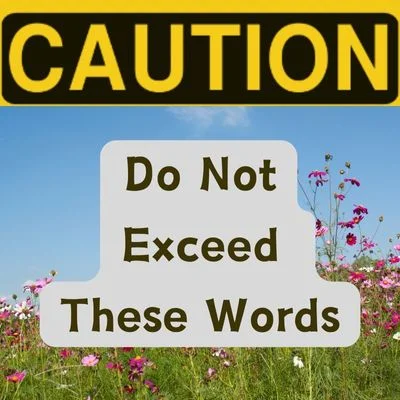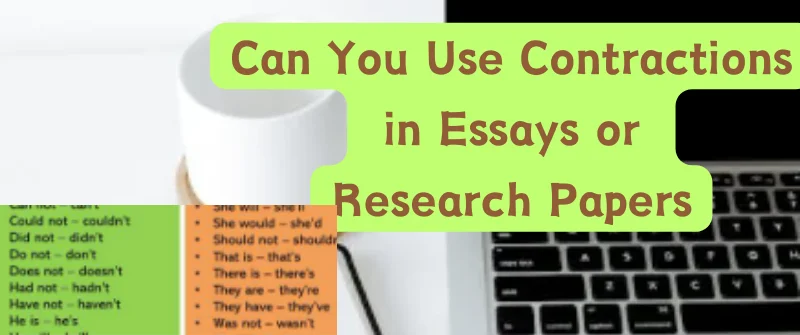Is it Ok to Write More Words in An Essay than the Limit?

Is it right to go above the allotted word count when writing an essay? Regarding academic writing, brevity is of the utmost importance.
Your adherence to the specified word count will highlight your ability to communicate information while maintaining brevity effectively.
If you go beyond the given time, you run the danger of watering down your arguments and losing the interest of the reader. Remember that when it comes to essays, quality always trumps quantity.
Is it Ok to Write More Words in an Essay than Asked?
Due to the fact that it indicates a lack of adherence to the rules, exceeding the word count could result in fines or a lower grade. In addition, lengthy essays can be boring for readers, making it more difficult for them to remain interested in their reading.

It is practical to write more words in an essay than the restriction set, but doing so is typically not encouraged.
Indeed it is possible to write more words than the limit that has been set.
However, if you have more pertinent material or compelling arguments to support your thesis, you can ask your instructor for permission to go beyond the limit.
Such is only the case in particular circumstances.
Still, remember that it is always preferable to aim for clarity and conciseness within the provided constraints to ensure the essay is well-crafted and compelling.
People Also Read: How Many Words are 6 Pages of work? Get Optimized Essay Length
How Much More can You Write Beyond Word Limits?
When writing an essay, it is generally excellent practice to adhere as closely as possible to the word limit.
However, depending on the course, the instructor may permit a deviation of up to 10% (plus or minus) from the maximum allowed. If the restriction is 1000 words, this indicates that you have the capacity to write between 900 and 1100 words without incurring substantial penalties. This is the case even if the limit is 1000 words.
Nevertheless, you must verify this information with your professor or consult the specific rules provided for your work.
Remember that the objective is to successfully communicate your thoughts while adhering to the constraints, ensuring that your writing is coherent and clear.
Reasons why you can Write More Words
1. You have a Lot of Points to Argue
In these circumstances, going above the word limit could be the only way to address all pertinent points effectively. Remarkably, this makes it possible to conduct a comprehensive analysis and a more in-depth investigation of the subject.
Nevertheless, it is essential to keep everything clear and well organized while also ensuring that each point makes a substantial contribution to the argument as a whole.
2. You Want to Earn More Marks
Even though it is reasonable that you may have the urge to gain higher grades, it is unlikely that you will achieve this objective by merely exceeding the word limit in an essay. It is often more successful to emphasize quality than quantity.
The ability to demonstrate a comprehension of the topic at hand, provide adequately supported arguments, and convey information concisely are crucial characteristics that contribute to higher scores.
If you go above the allotted number of words in your essay without adding anything of value or importance, you may be hurting your overall quality.
3. Complex Topic
When you have a complicated topic or multiple facets that need to be thoroughly researched, then you can exceed the word limit.
When it comes to specific topics, conducting a more in-depth examination and discussion may be necessary to cover all pertinent aspects effectively.
Remember, if you go above the allotted number of words, you will have the opportunity to go further into the complexities of the subject matter and present a more in-depth grasp of it.
People Also Read: How Long to Write an Essay or Paper: Both in Pages and Words
Instances when you Should not Write More Words
1. Instructions Limit

In an essay, you should stay within the allotted word count if doing so would go against the guidelines that were given.
It is quite reasonable to stick to the allotted limit.
By doing so indicates your ability to follow instructions and effectively communicate your thoughts while staying within the boundaries that are in place.
2. Your Tutor Penalizes Excess Words
If exceeding the required number of words in an essay would result in an express penalty from your instructor, you should refrain from writing additional text.
3. During Exams
During examinations, it is critical to follow the instructions provided stringently, including any word restrictions that may be set. Because exams often contain stringent criteria that must be followed exactly, exceeding the word limit might result in penalties or disqualification, depending on the severity of the infraction.
4. No Time to Write More Words
Increasing the number of words you write in an essay is not a good idea when you are pressed for time.
Instead, it would assist if you concentrated on clearly communicating your thoughts within the confines of the allotted word count to ensure that you can finish your essay within the allotted amount of time.
5. If the Tutor will not Read beyond the Limit
If you are certain that your instructor will only read up to the allotted number of words, it is in your interest to stick to the restriction set.
6. No Point in Writing
It isn’t very meaningful to write more words if you have already consumed up all of your points or do not have any pertinent information to contribute that could be considered significant.
People Also Read: 9 Ways How to Make an Essay Longer and meet the Word Count
How to Decide When to Exceed the Word Limit or Not
Firstly, ensure that you have a complete understanding of the assignment’s context and requirements. Reviewing the instructions and guidelines that your instructor gave you is necessary in order to do this.
Consider whether the presence of convincing grounds warrants the additional words. This will help you make your case. Exist essential arguments or grounds of contention that just cannot be appropriately communicated within the allotted space? If this is the case, going over the limit can be acceptable.
Nevertheless, remember the importance of supplying robust supporting arguments or facts to substantiate the extended content. Make sure that the added words have a substantial impact on the overall argument and that they increase the level of analysis.
In addition, the enlarged content should maintain its clarity and cohesion throughout. Try to avoid excessive repetition as well as talks that get off-topic. Every phrase ought to contribute to the general quality of the essay as well as provide something of value to it.
How to Seek Approval to Exceed an Essay’s Word Limit
1. Effective Communication with Your Instructor or Examiner

Effective communication with your instructor or examiner is essential when seeking approval to exceed an essay’s word limit.
Approach them respectfully and express your intention to exceed the limit, outlining why it is necessary
2. Present a Well-Structured Proposal
Present a well-structured proposal that clearly explains your rationale for exceeding the limit.
Emphasize the value and relevance of the additional content, highlighting how it will enhance the depth of analysis or provide important insights.
Acknowledge that you understand the importance of adhering to guidelines but believe that the benefits of exceeding the limit outweigh the risks. Assure them that you have maintained the quality and coherence of your writing.
People Also Read: Starter Sentences for Essays: Examples and How to write them
3. Be Prepared to Accept Their Final Decision with Grace
Understand that they may have valid reasons for denying your request. Respect their expertise and trust their judgment in assessing the assignment’s requirements.
Remember, open and respectful communication is key in seeking approval. It demonstrates your commitment to academic integrity and your willingness to engage in constructive dialogue with your instructor or examiner.

Josh Jasen or JJ as we fondly call him, is a senior academic editor at Grade Bees in charge of the writing department. When not managing complex essays and academic writing tasks, Josh is busy advising students on how to pass assignments. In his spare time, he loves playing football or walking with his dog around the park.




